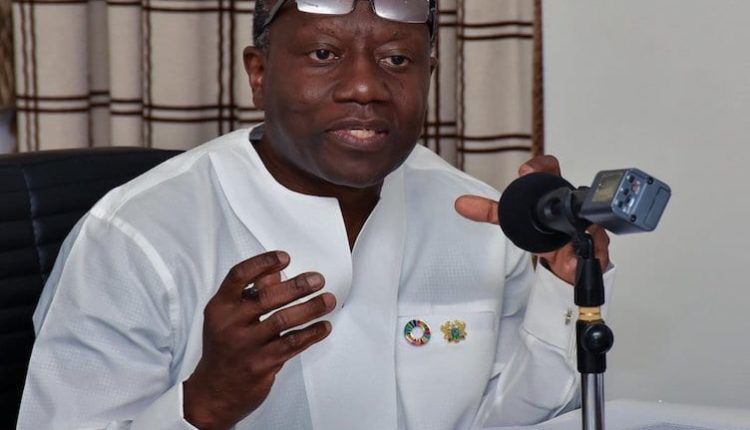Gov’t to receive over GH¢2.5bn of ABFA for 2022
A projected amount of over GH¢2.5billion of oil revenue will be allocated to government through the Annual Budget Funding Amount (ABFA), following approval of the 2022 Budget by Parliament.
This on the back of an estimated petroleum benchmark revenue of US$1,006.1million for 2022. It is made up of Royalties of US$206.5million, Carried and Participating Interest of US$537.6million, Corporate Income Tax of US$ 261.1million and Surface Rentals of US$0.92million.
According to the ‘Budget Statement and Economic Policy’ for the 2022 fiscal year, petroleum receipts are projected to increase to US$1,033.2million in 2023, from US$618.46million (realised as of September 2021).
It is further expected to increase to US$1,060.7million in 2024, and US$1,017.2million in 2025.
The Benchmark Revenue for 2022, which is the petroleum receipts net amount ceded to the National Oil Company (NOC), is estimated at US$679.2million.
It is out of this amount that a sum of US$475.4million has been allocated to the ABFA to support implementation of the 2022 budget.
This amount is US$115.42million short of last year’s US$590.82million (as of September 2021) distributed to the allowable designated accounts in line with provisions of the Petroleum Revenue Management Act (PRMA).
Meanwhile, the Ghana Petroleum Funds (GPFs) will receive US$203.75million. The GPFs receipts will be distributed between the Ghana Stabilisation Fund (US$142.6million) and Ghana Heritage Fund (US$61.1million).

The selected priority areas for the ABFA allocation for 2022 include agriculture, education and health service delivery, roads, rail and other critical infrastructure, and industrial development.
The statement announcing the disbursement further noted that the Public Interest and Accountability Committee (PIAC) has been allocated an amount of GH¢5,767,000 to support their operations in 2022.
This is in line with Section 13 of Petroleum Revenue Management Act 2015, (ACT 893) and Section 5 of Ghana Infrastructure Investment Fund (Amendment) Act 2021 (Act 1063).
The breakdown of the 2022 ABFA allocations is as follows:
| No. | Priority Area | Amount (GH₵) |
| 1 | Agriculture | 35,000,000 |
| 2 | Industrial Development | 39,215,000 |
| 3 | Road, rail and other critical infrastructure | 1,449,603,000 |
| 4 | Education, and health services delivery | 1,026,270,000 |
| 5 | PIAC | 5,767,000 |
Writer’s construct. Source: 2022 Budget Statement
Petroleum sector development
According to the Ministry of Finance, through the Land Use and Spatial Planning Authority (LUSPA) it completed the preparation of spatial plans (Structure Plans and Local Plans) for Ghana’s Petroleum Hub area in the Jomoro district.
This plan will guide the physical development of Ghana’s Petroleum Hub, which is supposed to make the country a leader in the petrochemical industry and related services in the West African region.
Meanwhile, the spatial plans for the Afienya Industrial Area were said to be 80 percent complete.
It is expected that LUSPA will train the Regional and District Spatial Planning Committees (RSPCs and DSPCs) on spatial plan preparation this year.
It also emerged that government assisted GNPC to acquire 7 percent each of Anadarko’s interests in the Deepwater Tano (DWT) and West Cape Three Points (WCTP) Blocks in the sale and purchase deal with Kosmos Energy.



